In the changing seasons, folklore researcher Ka So Lieng (Son Hoa district, Phu Yen province) enthusiastically performed the description of the beauty of Xing Chi Nga in the epic Chi Lo Kok that he loved. After eighty-odd farming seasons, Ka So Lieng still has a strong figure and a deep voice - the model of a Central Highlands village elder.
Folklore researcher Ka So Lieng is a field worker, a recorder, and an epic collector, but also an artist who sings khan (epic) tales. Epic storytellers are highly respected by the community. Mr. Ka So Lieng recalls his impression of khan storytellers: "That night, the house next door (Kham hamlet, Krong Pa commune, Son Hoa district) had a very big ceremony, with gongs, drums, and dancing, but when Mr. Kpa Y Meo started singing the epic Chi Lo Kok, it seemed like a magnet had attracted everyone around him, from inside to outside."
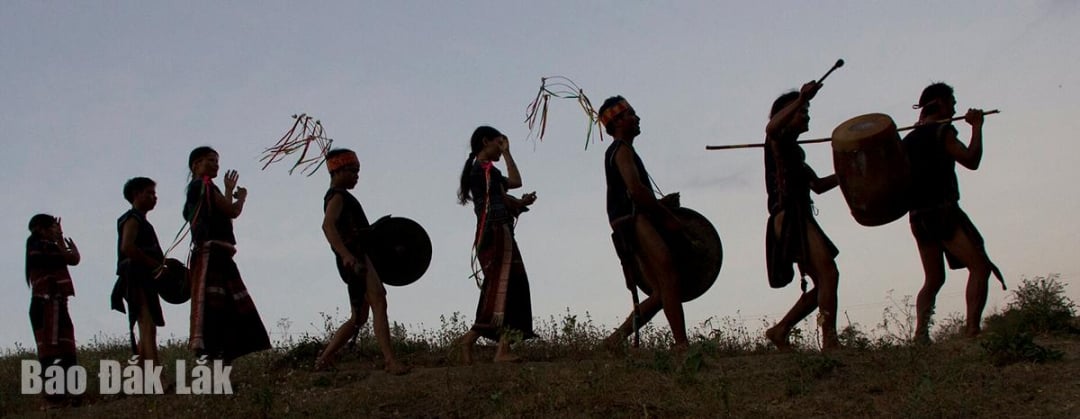 |
| Go to the field. |
It is difficult for anyone to fully explain the magical attraction of telling epics. There are epics that are only sung in one day, one night, but there are also epic works that artists have to perform for 7 days and nights. When there is a khan narrator in the house, women stop screaming, children stop crying, no one sleeps, no one talks, everyone listens. Sometimes they light a small fire to warm themselves and light a cigarette. They sit quietly like wood, as if mute. It can be said that khan narrators are living epics. The tone of the epics is even, sad, sometimes passionate, sometimes heroic, refreshing. In addition to the narration, the narrator takes on the character's voice. They sing with emphasis, slowly, not rushing to tell the whole work, reaching the final destination of the event and the feats of the heroes. They want to create a pause between events to be able to describe aspects of customs, rituals, and community life. The more interested and fascinated the listener is by the story's content, the more they aspire and dream to reach a better, more perfect life.
When he retired in Ea Cha Rang (Son Hoa district), Mr. Ka So Lieng witnessed the folk artists telling epics moving to the other side of the mountain one after another. Fearing that the nation's massive cultural treasure would be lost with the elderly, Ka So Lieng traveled to find the artists to listen to their stories, record them, and take notes. The more he did this work, the more passionate he became. Sometimes, he returned many times but still had not finished writing down a long poem. Sometimes, when he returned, the artist had passed away. He still kept many yellowed notebooks with notes that had not yet reached the end. From 1995 to now, folk culture researcher Ka So Lieng has had many research works that have won awards from the province to the central level; including famous collected long poems such as: Chi Lo Kok; Chi-Lieu epic; Chi Bri, Chi Brit...
Dr. Nguyen Dinh, former Vice Principal in charge of Phu Yen University, who has spent many years researching epics, assessed that the land in the West of Phu Yen and the Central Highlands provinces has a relatively large reserve of epics. In more than 10 years, with a passionate and dedicated working spirit, folklore researcher Ka So Lieng has published up to 6 epics: Chi Lo Kok, Xinh Chi On (Volume I), Xinh Chi On (Volume II), Hơbia Tului Kalipu, Truong ca Chi blông, Tiếng gong ong ba Hbia Lođă... The epics he collected are mostly heroic epics with the theme of war, of which the most popular and typical is the epic "Chi Lo Kok".
Folklore researcher Ka So Lieng confided that his greatest wish is for ethnic communities to read epics, especially the young generation to read them to see the goodness and beauty of their ethnic culture contained in them. He is also worried that nowadays, due to the influence of modern culture, not many people have the need to listen to epics like before. Artists who know how to sing and tell epics are old and weak, many have taken their "treasures" back to their ancestors without having time to teach them to the next generation. The team of intellectuals dedicated to the work of collecting and researching epics of ethnic groups is also seriously lacking...
Source: https://baodaklak.vn/van-hoa-du-lich-van-hoc-nghe-thuat/202506/ong-su-thi-46c0f0f/








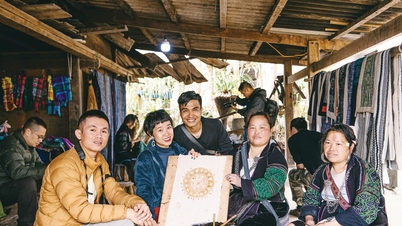

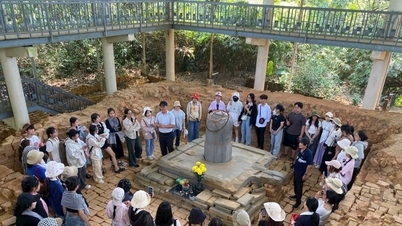

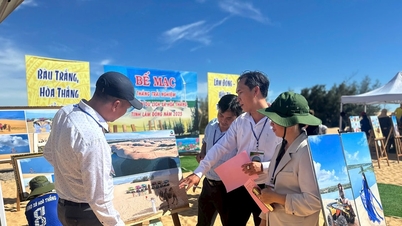
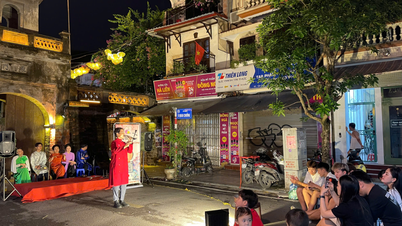

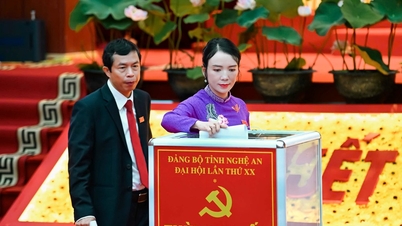

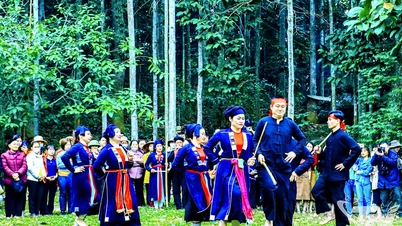

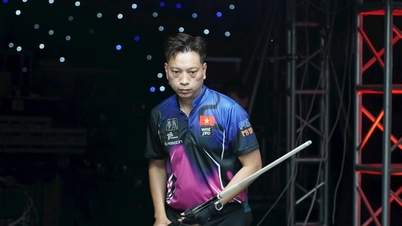



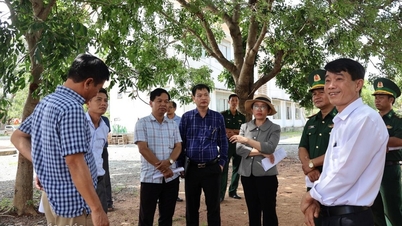
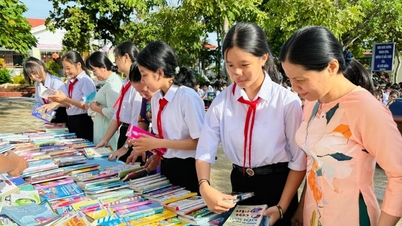
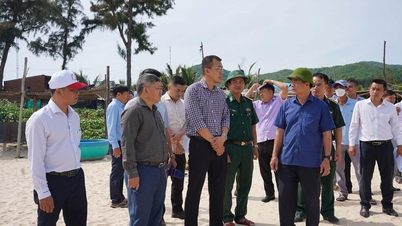
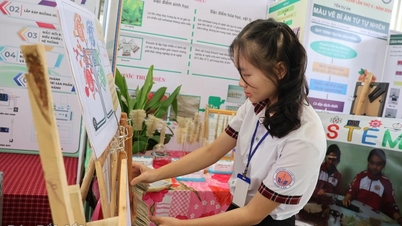






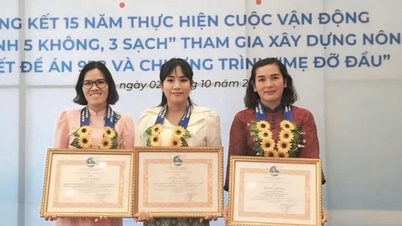
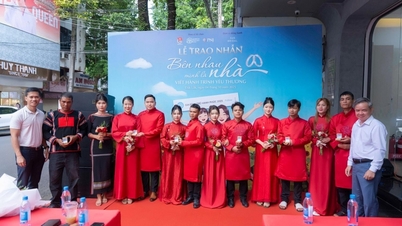
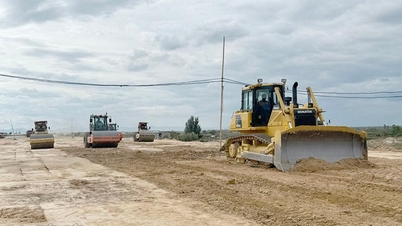
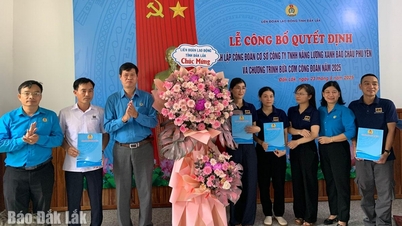



















































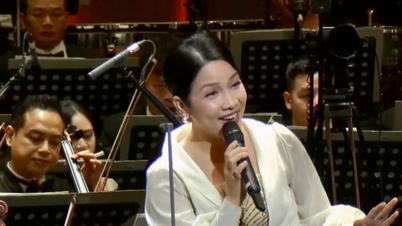














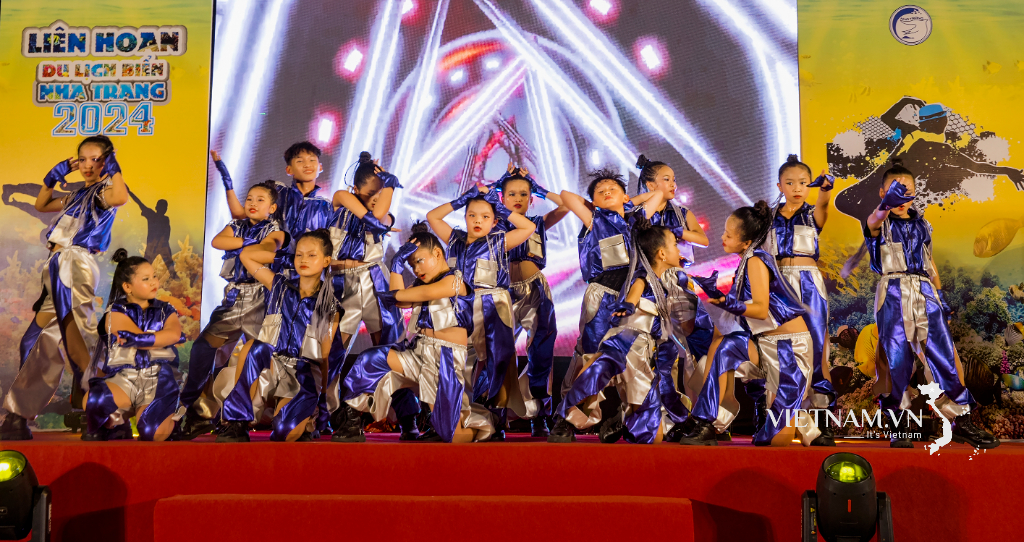
Comment (0)